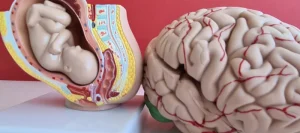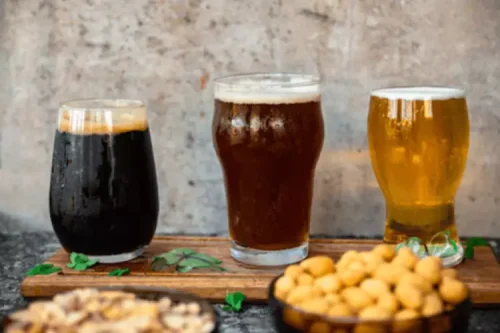
This is no different in humans; it’s the reason why we partake in more than one helping of cake. People with low levels of dopamine may be more prone to addiction; a person seeking pleasure via drugs or alcohol alcohol and dopamine or food needs higher and higher levels of dopamine. A small study by researchers at Columbia University revealed that the dopamine produced during drinking is concentrated in the brain’s reward center.
Beverage effects on FC
For example, antagonists of the 5-HT3 and 5-HT1A receptors reduced alcohol ingestion in rodents (Litten et al. 1996; Pettinati 1996; DeVry 1995). However, the 5-HT1A receptor antagonists also altered food and water intake, suggesting that this receptor may modulate general consummatory behavior rather than specifically reduce the desire to drink alcohol. In humans, the 5-HT3 receptor antagonist ondansetron reduced total alcohol consumption and the desire to drink in alcoholics; as with the SSRI’s, however, this effect was relatively modest (Johnson et al. 1993; Pettinati 1996; Sellers et al. 1994). Long-term, or chronic, alcohol exposure2 can lead to adaptive changes within brain cells. This process, also called tolerance development, presumably is a mechanism to reestablish normal cell function, or homeostasis, in response to continuous alcohol-induced alterations.
General procedure
- An April 2013 study found a drug called Nalmefene to be a potential new treatment option for alcohol abuse.
- This review paper aims to consolidate and to summarize some of the recent papers which have been published in this regard.
- Long-term alcohol exposure results, however, in a compensatory increase in calcium flow, which becomes excessive when alcohol consumption ceases.
- Sugar plus ultra-processed foods can act similarly to drugs in changing brains and behavior.
Dopamine is an important neurotransmitter involved in reward mechanism in the brain and thereby influences the development and relapse of AD. In the dopaminergic pathway, one such gene is a dopamine receptor D2 (DRD2) which codes for a receptor of dopamine. Slowly over a period of time, the person craves more of the drug, to achieve the same kind of high as earlier. He thus starts consuming more and more alcohol until a point comes when normal brain chemistry simply cannot function without alcohol. As an example of the kind of brain chemistry changes which take place, the following image shows the brain scan of a methamphetamine addict and a non-addict [Figure 1]. Yoshimoto K et al., Alcohol stimulates the release of dopamine and serotonin in the nucleus accumbens.
AB behavior following dopamine depletion
For example, alcohol modulates the serotonin levels in the synapses and modifies the activities of specific serotonin receptor proteins. Moreover, SSRI’s and receptor antagonists can reduce alcohol consumption in humans and animals, although these agents are only moderately effective in treating alcohol https://ecosoberhouse.com/ abuse. The second line of evidence implicating serotonin in the development of alcohol abuse stems from studies of compounds that interfere with the functions of the transporters that remove serotonin from the synapse. These agents also are called selective serotonin reuptake inhibitors (SSRI’s).
- 3By breeding rats with similar alcohol-consumption patterns (e.g., high consumption or low consumption) with each other for several generations, researchers created two strains with distinctly different preferences for alcohol.
- If you develop a tolerance to a substance, you’ll need to use more of it to feel the effects you’re used to.
- These studies found that P rats have fewer 5-HT1A receptor molecules than do NP rats (DeVry 1995).
- We are also thankful to the members of the Sara Jones laboratory at Wake Forest University and the Laboratory for Integrative Neuroscience at NIAAA for their support and helpful discussions.
- He thus starts consuming more and more alcohol until a point comes when normal brain chemistry simply cannot function without alcohol.
Alcohol and Dopamine Addiction

These include your age, gender, overall health, body weight, how much you drink, how long you have been drinking and how often you normally drink. Exciting developments are happening in the world of addiction that will allow clinicians and researchers to develop targeted therapies that may be able to prevent addiction and alcohol-related brain damage in dependent individuals. Disulfiram administration helps patients learn non-drinking behaviours and the ability to exercise self-control. Most individuals cease alcohol use after the administration of disulfiram due to the strong expectancy of negative consequences. There is evidence of a link between serotonin deficiency, impulsivity and drinking behaviour which may explain the role of SSRIs in suppressing alcohol reinforced behaviour in some alcohol-dependent patients. The positive reinforcing action of alcohol comes from the activation of the dopaminergic reward pathway in the limbic system.

About this chapter


